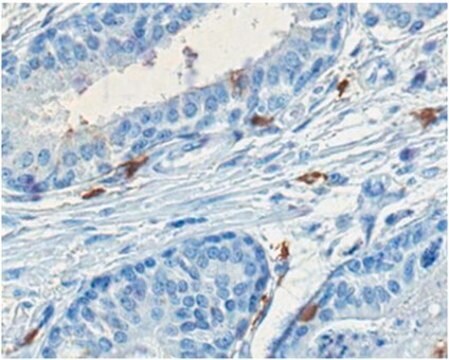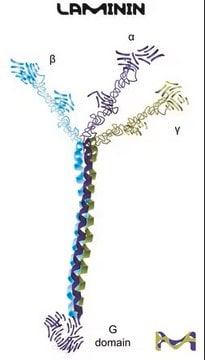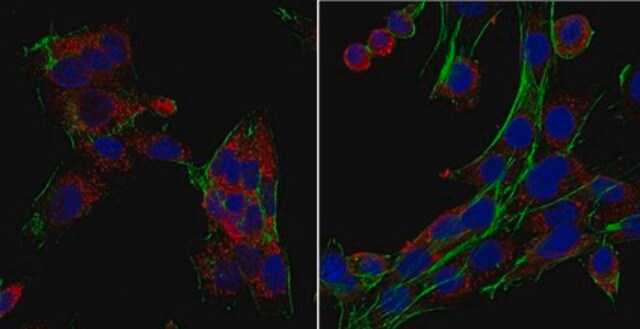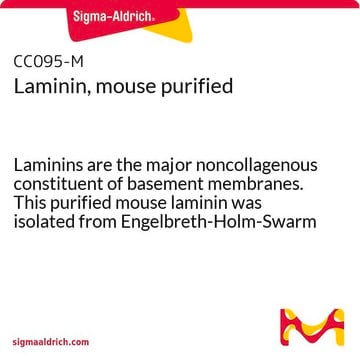Recommended Products
biological source
mouse
Quality Level
conjugate
unconjugated
antibody form
purified antibody
antibody product type
primary antibodies
clone
19D8, monoclonal
mol wt
observed mol wt ~45 kDa
species reactivity
llama
packaging
antibody small pack of 100 μg
technique(s)
ELISA: suitable
electron microscopy: suitable
immunocytochemistry: suitable
immunohistochemistry (formalin-fixed, paraffin-embedded sections): suitable
western blot: suitable
shipped in
dry ice
storage temp.
2-8°C
target post-translational modification
unmodified
General description
Specificity
Immunogen
Application
Evaluated by Western Blotting with Llama IgG2.
Western Blotting Analysis (WB): A 1:1,000 dilution of this antibody detected Llama IgG2, but not IgG1 or IgG3.
Tested Applications
ELISA Analysis: A representative lot detected Mouse Anti-Llama IgG2 in ELISA applications (Daley, L.P., et. al. (2005). Clin Diagn Lab Immunol. 12(3):380-6; Daley-Bauer, L.P., et. al. (2010). Clin Vaccine Immunol. 17(12):2007-15).
Immunoaffinity Purification: A representative lot was used in Immunoaffinity Purification applications (Daley, L.P., et. al. (2005). Clin Diagn Lab Immunol. 12(3):380-6; Daley-Bauer, L.P., et. al. (2010). Clin Vaccine Immunol. 17(12):2007-15).
Note: Actual optimal working dilutions must be determined by end user as specimens, and experimental conditions may vary with the end user
Physical form
Storage and Stability
Other Notes
Disclaimer
Not finding the right product?
Try our Product Selector Tool.
Storage Class Code
12 - Non Combustible Liquids
WGK
WGK 1
Flash Point(F)
Not applicable
Flash Point(C)
Not applicable
Certificates of Analysis (COA)
Search for Certificates of Analysis (COA) by entering the products Lot/Batch Number. Lot and Batch Numbers can be found on a product’s label following the words ‘Lot’ or ‘Batch’.
Already Own This Product?
Find documentation for the products that you have recently purchased in the Document Library.
Our team of scientists has experience in all areas of research including Life Science, Material Science, Chemical Synthesis, Chromatography, Analytical and many others.
Contact Technical Service








